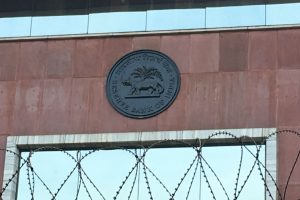Reserve Bank of India (RBI) has made linking of national biometric ID Aadhaar to bank accounts mandatory as part of its updated ‘Know Your Customer (KYC)’ guidelines. This, however, will be subject to the final decision of the Supreme Court on making of Aadhaar mandatory, RBI stated in its Master Direction – Know Your Customer (KYC) Direction, 2016 (updated as on April 20, 2018).
Till now, an Officially Valid Document (OVD) for address proof together with Permanent Account Number (PAN) issued by the Income Tax Department and a recent passport size photograph were the key KYC documents. But in the amended Customer Due Diligence (CDD) procedure, RBI said, “The Aadhaar number, the PAN or Form No. 60” need to be obtained from an individual who is eligible for applying for the biometric ID. RBI has done away with sections relating to the use of other OVD by banks for address and identity proof.
For residents of Jammu and Kashmir, Assam or Meghalaya, who do not submit Aadhaar or proof of application of enrolment for Aadhaar, the bank may obtain a “certified copy of an OVD containing details of identity and address and one recent photograph,”.
RBI said Aadhaar number shall not be sought from individuals who are not residents. “From an individual who is not eligible to be enrolled for an Aadhaar number, or who is not a resident, the following shall be obtained: PAN or Form No. 60, one recent photograph and a certified copy of an OVD containing details of identity and address.”
In terms of the provisions of Prevention of Money-Laundering Act, 2002 and the Prevention of Money-Laundering (Maintenance of Records) Rules, 2005, Regulated Entities (REs) are required to follow certain customer identification procedures while undertaking a transaction either by establishing an account based relationship or otherwise and monitor their transactions. REs take steps to implement provisions of Prevention of Money-Laundering Act, 2002 and the Prevention of Money-Laundering (Maintenance of Records) Rules, 2005, as amended from time to time, including operational instructions issued in pursuance of such amendment(s).
The revised Master Direction is in accordance with the changes carried out in the PML Rules vide Gazette Notification GSR 538(E) dated June 1, 2017 and thereafter and is subject to the final judgment of the Hon’ble Supreme Court in the case of Justice K.S. Puttaswamy (Retd.) v. Union of India (Aadhaar case).
Read the Directions HERE.
[RBI/DBR/2015-16/18]
[Master Direction DBR.AML.BC.No.81/14.01.001/2015-16]

